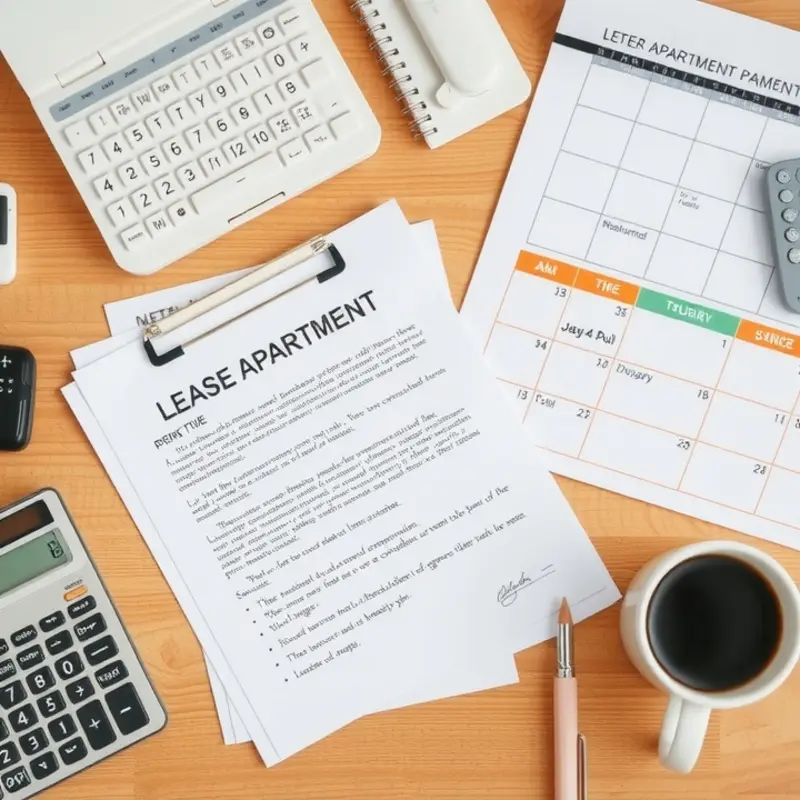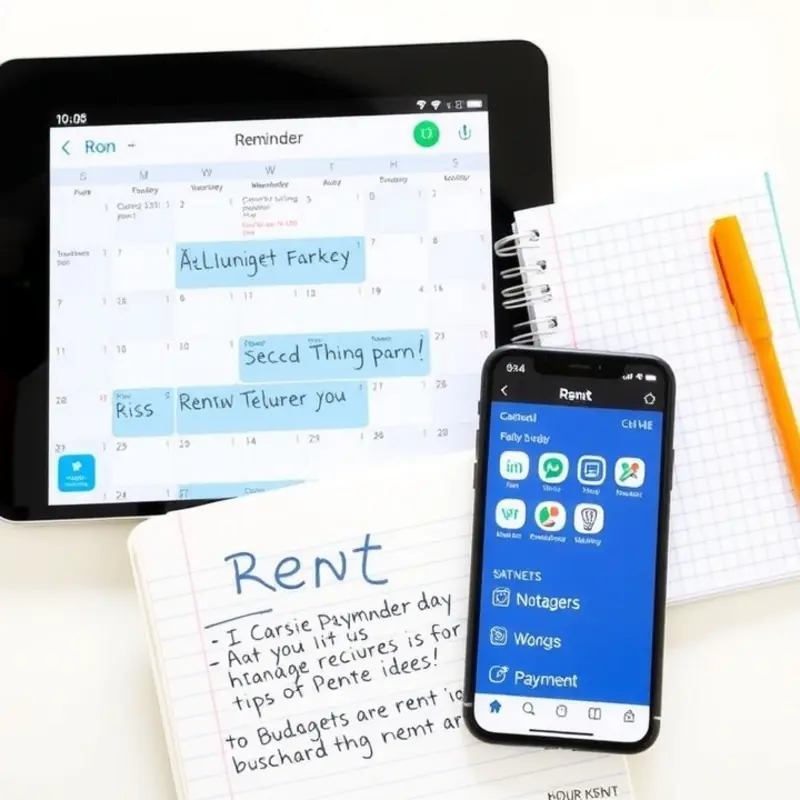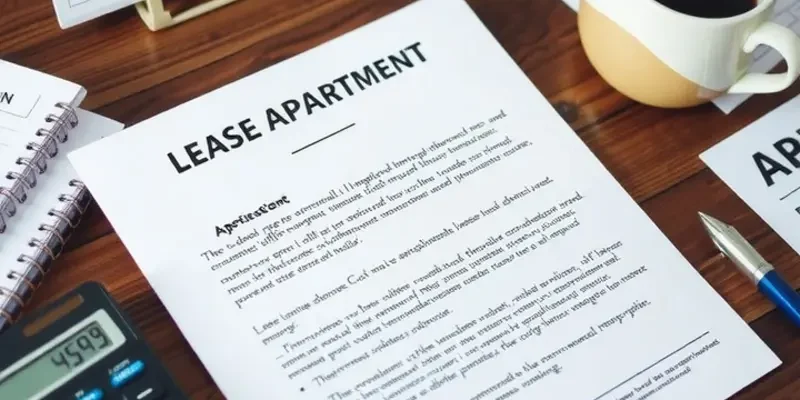Renting an apartment can be an exciting yet daunting experience, especially for young professionals, first-time renters, students, couples, and families seeking financial clarity. With various responsibilities on your plate, it’s crucial to manage them effectively. Late fees can quickly add up, affecting your overall budget and causing unnecessary stress. Navigating lease agreements, understanding payment deadlines, and keeping your financial health in check can be challenging but necessary. Implementing proactive measures can save you both money and headaches down the road. This guide offers practical advice on managing late fees, helping you stay organized and financially secure in your living situation. From tips on understanding your lease to strategies for ensuring timely payments, we aim to empower you with the knowledge to make informed decisions. By addressing various aspects surrounding renting, we hope to demystify the process and equip you to avoid those dreaded late fees, so you can focus on enjoying your new home.
Understanding Lease Agreements and Payment Terms

Signing a lease agreement is an important step, especially for renters seeking to avoid late fees. A lease outlines the relationship between tenant and landlord, detailing obligations and expectations. One crucial aspect to understand is the payment terms.
The lease will specify the rent amount, due date, and the method of payment. It’s essential to review these details thoroughly. Make a note of the due date and set a reminder at least a week in advance. This helps ensure you have enough funds and time to resolve any payment issues.
Lease agreements often include clauses about late fees, which can vary significantly. Some landlords might charge a flat fee, while others may impose a percentage of the rent. Be aware of any grace period, often a few days, before late fees are applied. Knowing this can prevent unnecessary charges if you’re running a bit behind schedule.
Reading your lease agreement thoroughly should also extend to inspecting any clauses related to payment processing times. If your payment is mailed or processed electronically, these factors can affect when your rent is considered paid. For instance, mailed checks might take days to arrive, and weekends or holidays can delay processing.
To stay organized and mindful of payment terms, consider the following tips:
- Digital Alerts: Utilize calendar apps to set reminders for rent payments. Schedule these alerts for a few days before the actual due date.
- Budgeting: Allocate rent money as soon as you receive your paycheck. This reduces the risk of spending your rent money on other expenses.
- Autopay: If your rental agreement allows, set up automatic payments. This reduces the risk of forgetting due dates.
- Communication: Maintain open communication with your landlord. If difficulties arise, addressing them early can mitigate misunderstandings.
It’s also wise to keep a copy of your payment confirmation. This can be crucial in resolving any disputes over late fees. If you need more tips on managing rental finances, check out this guide on financial planning for renters.
In summary, knowing your lease’s payment terms can save you from unintended fees. Paying attention to details like due dates, late fee structures, and processing times is key. These preventive measures not only avert additional costs but also foster a positive relationship with your landlord.
Proactive Strategies to Avoid Late Fees

Renters can employ a variety of strategies to avoid incurring late fees, which can save money and reduce financial stress. One effective method is to set up calendar reminders for rent due dates. Most digital calendars allow you to schedule recurring alerts, ensuring you never miss a deadline. Reminders can be set for a few days before the rent is due, providing ample time to make transfers or address any banking issues.
Another reliable option is utilizing auto-pay services offered by many landlords and property management companies. Auto-pay automatically deducts the rent amount from your bank account each month, minimizing the risk of late payments. However, to avoid overdraft fees, it’s crucial to ensure sufficient funds are available in your account before the rent is deducted.
Creating a budget that includes rent as a non-negotiable expense is vital. Allocate a specific portion of your income to cover rent before other discretionary spending. By prioritizing housing costs, you strengthen your financial foundation, making it easier to manage other expenses. Use apps and tools that help track expenses and income, aiming for a clear overview of your financial situation at any given time.
Apps and software designed for budgeting and financial planning can be invaluable. Choose a platform that suits your lifestyle preferences and is user-friendly. These tools often provide alerts for upcoming bills and help categorize expenses, ensuring you never lose track of your obligations. They can also assist in planning for unexpected changes, like medical emergencies or car repairs, by creating an emergency fund.
Develop a habit of setting aside a small amount each month specifically for emergencies. Even a modest emergency fund can prevent a domino effect of financial strain, including late fees when unforeseen expenses arise. This practice cultivates financial resilience and ensures your rent remains a top priority.
Finally, if financial challenges arise, communicate with your landlord as early as possible. Many landlords appreciate transparency and may be willing to arrange a payment plan if informed in advance. This level of communication can prevent the imposition of late fees and demonstrate your reliability as a tenant.
For more tips on financial planning and management, check out our detailed guide on financial planning for renters, which offers additional resources and strategies to maintain financial stability in rental living.
Final words
Understanding and managing late fees is crucial for all renters, whether you’re a student, a couple, or part of a family. By taking the time to carefully read your lease agreement and applying proactive strategies to track your payments, you can maintain financial clarity and prevent unnecessary fees. It’s all about planning ahead and establishing the right systems for your lifestyle. Remember, a little effort in organizing can lead to significant savings in the long run, giving you peace of mind so you can enjoy your home without the worry of late payments. Take charge of your finances today, and make your rental experience a positive one!









